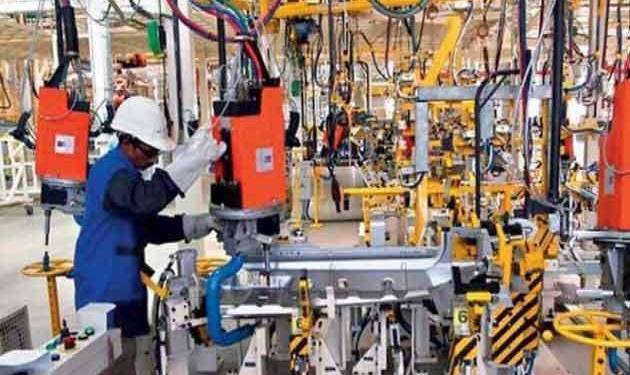As a result of the constant push of the Modi government in the manufacturing sector, the manufacturing sector activity has climbed to a near eight-year high in January, driven by a sharp rise in new business orders amid a rebound in demand conditions that led to a rise in production and hiring activity. The IHS Markit India Manufacturing Purchasing managers’ index has revealed this.
The manufacturing Purchasing Managers’ Index (PMI) for India jumped to 55.3 in January from 52.7 in December, the highest level in eight years. Notably, a figure above 50 indicates expansion of activities in the sector. The recently released economic survey of the government too has expressed similar vision concerning the manufacturing in India. This survey further affirms the strides made by the central government in the sector, especially through ‘Make in India’.
This survey by data analytics firm IHS Markit tracked new orders, output, jobs, suppliers’ delivery time, and stocks of purchases at around 400 manufacturers.
“The PMI results show that a notable rebound in demand boosted growth of sales, input buying, production and employment as firms focused on rebuilding their inventories and expanding their capacities in anticipation of further increases in new business,” Pollyanna de Lima, principal economist at IHS Markit, said.
As the demand and activities in the sector increased, January saw growth of new business, output, exports, input buying and employment. Simultaneously, animal spirits among businesses have taken off to higher levels and there has been a rise in both input costs and output charges.
Modi government has been enthusiastic about manufacturing ever since it took to office. With projects like ‘Make in India’ and now proposed ‘Assemble in India’, it has affirmed its commitment to the manufacturing sector. The government is planning a Rs 45,000-crore fund in an aggressive push to ensure big firms such as Apple, Samsung, Huawei, Oppo and Vivo, besides contract manufacturers like Foxconn and Wistron, bring their global supply chains to India and make the country an electronics manufacturing hub in the next five years. According to a report of the ET, “An inter-ministerial note (on this) has been floated.”
Out of the Rs 45,000-crore fund, about Rs 41,000 crore would be disbursed to companies based on production-linked incentive (PLI) criteria, while the remaining Rs 4,000 crore would be offered under a proposed capital subsidy, or reimbursement, scheme. The proposed scheme will replace the popular Modified Special Incentive Package Scheme (M-SIPS).
Central government’s initiatives such as Mudra, Make in India and other schemes have played a crucial role in uplifting the ever- neglected manufacturing sector of the country. Positive signs in this sector can cure many of the problems of the country, including unemployment. With the proposed policy of ‘wealth creation’, manufacturing would further be benefitted, enhancing the report card of the Modi government. At a time when the economy is recovering with stronger fundamentals, most media attention is expended squarely on Shaheen Bagh protests which are fuelled by misinformation and radicalisation.



























